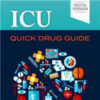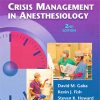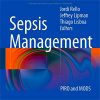Long-term Cognitive Impairment After ARDS
ccforum.biomedcentral.comReducing the practical burden of cognitive recovery following critical illness depends crucially on understanding the links between brain injury and lung injury.
New deficits in learning and memory, and new development of psychiatric illness, inherently limit the maximum extent of recovery by restricting the extent to which patients can meaningfully participate in rehabilitation.
The influence of pre-existing cognitive impairment on susceptibility and recovery highlights the importance of accurate detection and definition of cognitive impairment.
Evidence for distinct patterns of inflammatory damage, the predilection of cytokines for the hippocampus, and activation of systemic inflammatory pathways in high-tidal-volume mechanical ventilation collectively support minimizing tidal volume as much as possible to avoid acute respiratory distress syndrome (ARDS), in turn helping prevent further endothelial and microglial activation of the inflammatory cascade.
The ability to control and monitor parameters such as PEEP and fluid balance in the intensive care unit setting provides an opportunity to optimize treatment on an individual basis to minimize the risk of long-term cognitive impairment.

















